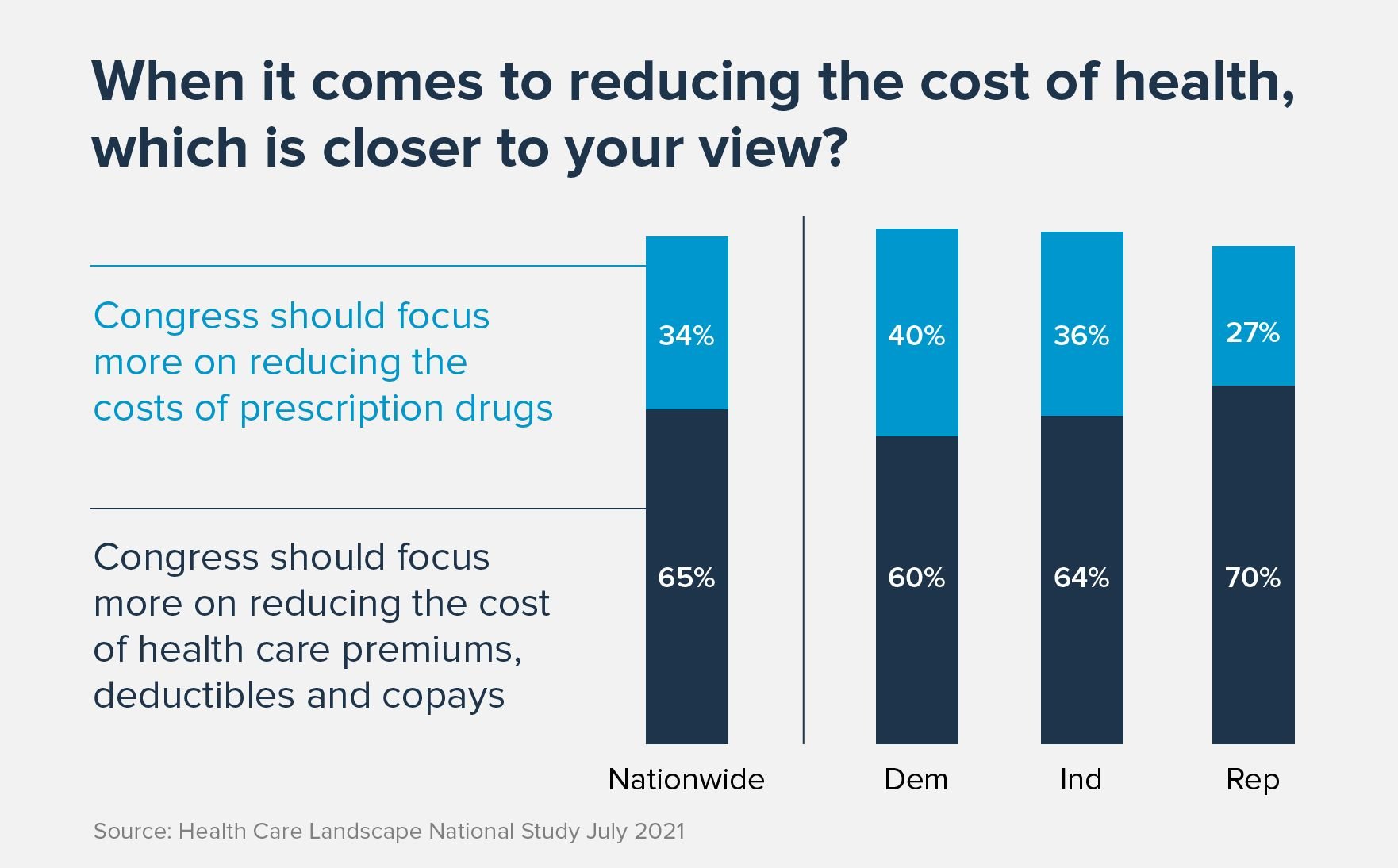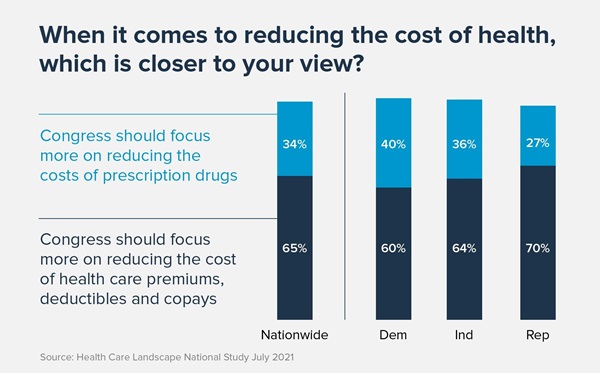While the debate to address health care affordability intensifies on Capitol Hill, Americans across political parties agree on a path forward: reduce health care costs broadly and help Americans better access and afford their care through commonsense, bipartisan solutions. Here are three findings from recent polling data you should know.
- Voters across party lines see insurance coverage as a top issue to address.
Americans are rightly concerned about health care costs. When asked about the top issues they would like addressed by policymakers, Democrats, Independents and Republicans all see health insurance costs and coverage as a top issue to tackle after the economy, COVID-19 pandemic recovery and immigration, according to a recent Health Care Landscape study.

When asked directly about coverage-related costs versus prescription medicine-related costs, two-thirds (65%) of voters say Congress should focus more on reducing the costs of health care premiums, deductibles and copays as opposed to focusing on reducing the costs of prescription medicines. This includes 60% of Democrats, 64% of Independents and 70% of Republicans.
- Voters want strengthened coverage to better access and afford care, not radical change.
Nine in ten voters (93%) think health care out-of-pocket costs should be low enough so they do not get in the way of needed care, according to the same July 2021 poll. But they don’t see radical change as the answer; 79% think we need to be cautious about changes we make to the stressed health care system coming out of COVID-19, according to a recent study on health care coverage and quality.
Americans also don’t think renewed calls to repeal patient protections as part of drug pricing “negotiations” is the right way to address what they actually care about – affordability. In fact, polling shows 71% oppose allowing the federal government to interfere in negotiations between Medicare Part D plans and drug manufacturers if it means seniors and those with disabilities could lose access to the medicines they currently take.
- Voters want a bipartisan approach to solutions – and are aligned on what solutions would help.
The COVID-19 pandemic has demonstrated what is possible when stakeholders work together, and Americans want that collaborative approach in addressing other challenges, such as health coverage and affordability. In fact, nine in ten (88%) voters – including 92% of Democrats, 84% of Independents and 87% of Republicans – are drawn to a bipartisan health care reform proposal which focuses on the following:
- Reducing what patients spend for their prescription medicines at the pharmacy counter, while ensuring continued public-private collaboration to develop lifesaving medicines and treatments.
- Placing an annual cap on consumers’ out of pocket costs.
- Improving the rebate system so that consumers receive more discounts, directly lowering medicine prices at the pharmacy counter.
- Encouraging greater collaboration in drug research between government and biopharmaceutical companies to work together on a cure for things like cancer and Alzheimer's in the way they developed coronavirus vaccines at record speed
Voters want a bipartisan approach to health care reform and have given policymakers a path to advance health care affordability: lower what people have to pay out of pocket and deliver commonsense solutions. Learn more about how at PhRMA.org/BetterWay.
Click here to download an infographic of the above information.






